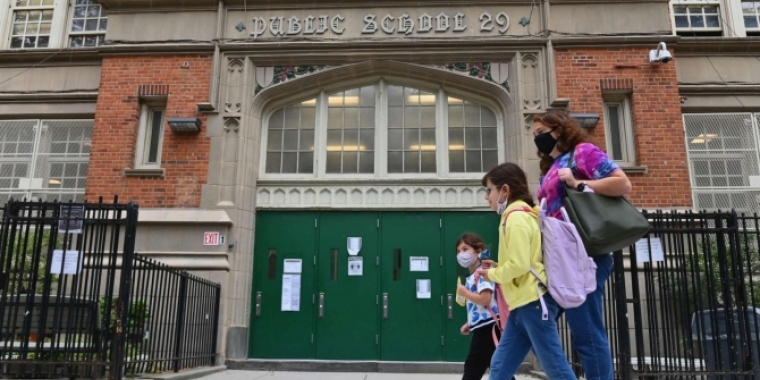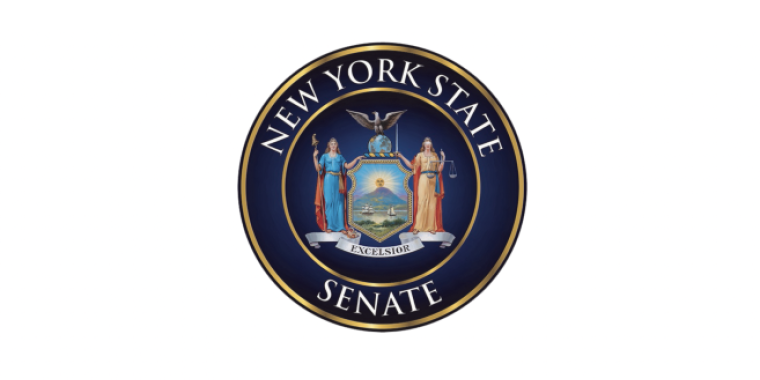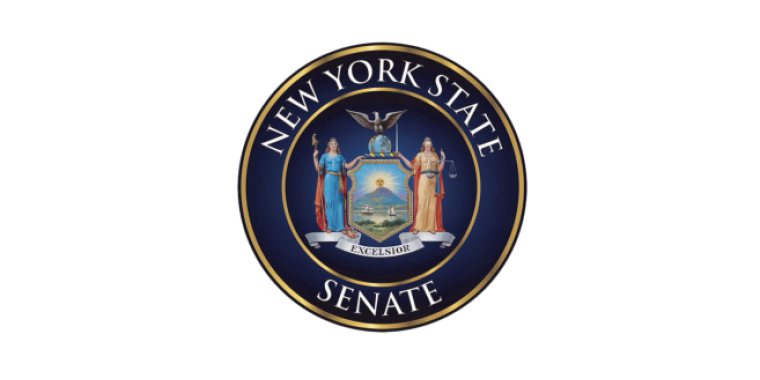
lgbtSr Interview: New York State Senator Liz Krueger
By Mark McNease
I had the pleasure of conducting an interview with New York State Senator Liz Krueger. Senator Krueger has been in the New York Senate since being elected in a Special Election in 2002. She is currently the Ranking Member of the Senate Finance Committee and is a member of five other committees.
I receive Senator Krueger’s events emails and was aware that seniors and the aging population are among her signature issues. She was also the second person to sign on to the New York marriage equality bill, back in 2002, just behind the bill’s original sponsor, Senator Tom Duane. I had the chance to speak with Senator Krueger and get her responses on some questions about issues we face in aging and about LGBT equality, specifically marriage now that it’s legal in New York State. Many thanks to Senator Krueger for taking the time to speak with me.
MM: What’s the response been like to the community roundtables you’ve been holding, such as the recent one on “The Graying of the American Workforce”?
LK: They're going extraordinarily well. We did a series last year of five workshops primarily focused on senior issues for their caregivers. We had an overwhelming response from the community, but a number of people would come to the breakfasts and say they wished they'd known about these issues five years ago, how to plan for these issues ahead of time before facing them for themselves or their partners or parents.
Out of that we decided that this year we would again host a five-breakfast series but focus it on planning for your older years and the changes you or your loved ones may face. A little overwhelmingly, we had 80 people attend our first breakfast, 70 of whom we didn't know. What we found was overwhelming interest from a whole new universe of people starting to learn about this set of topics.
We've just started this current series but I expect we'll see a significant turnout for people wanting to plan for their older years or for their loved ones.
One reason we decided to do 8:00 am breakfast sessions was to accommodate working people with day jobs. We found they can pull off a breakfast session ending at 9:30 am better then a later or evening session. In a perfect world I'd like to have the technological capacity to tape these and make them available online but we have not been able to pull this off yet.
MM: The news seems relentlessly pessimistic about unemployment and people’s prospects for finding work at a time when we’re having to work later and later in life. Do you think there’s any sort of workplace trend toward seeing older workers as assets?
LK: It is such a struggle for older workers or displaced workers above the age of fifty. I have an exceptionally large senior population in my district. And I realize too we need new language: my father is eighty-two and works two jobs. I have people calling my office every day who've been laid off at age fifty or older and concluded there's no place in the workforce for them. So when we're talking about what an older American is, what a senior is, that definition is changing.
For the workforce it's clear that there is a dividing line. If you are out of work and above age fifty, there's an assumption by the workforce that you're not coming back. And I don't know too many people at age fifty who have the resources and ability not to work again for the rest of their lives.
You have the dual realities of the unbelievable economic realities for so many Americans hitting at the same time that the aging population is skyrocketing. And modern medicine is allowing people to live much longer. So we're living longer as well and the economy is now saying that an 8 percent unemployment rate is acceptable.
It's a buyer's market in the workplace right now. Everybody seems to prefer the opportunity to hire younger and cheaper, and perhaps with better technology skills. There seems to be some very broad-based biased toward hiring this way. You can find 2500 people applying for a job opening for 5 people.
It's a scary period but not unique for older people. I want young people to be able to move into the workforce and start to deal with enormous college loans. They're going out now and finding that the opportunities for them are also limited. They're not imagining they'll be able to live on their own and many are moving back in with their parents. And for some people this is all rolled into one household: you've raised your kids, you thought you were done with these responsibilities, and suddenly you have your college graduate child moving back in with you.
Also, as you get older and you know that your ability to maintain health insurance is directly tied into the job you have, the risk you may be facing to try and change that job or the fear of losing your job and not being able to access health insurance, you absolutely see that differently when you're over fifty. I can't tell you how many people call my office each week to talk about having lost their jobs, or their job used to provide health insurance and no longer does, or they've been made contract workers without benefits. Now they're facing a health problem and they're in sheer panic. We're technically still a year and half away from "national health care" if it survives.
Here in New York we have something called the Freelancers Union that offers insurance for people who work contract or are self-employed. They have a good set of insurance options, but you still have to be able to pay out of pocket. I would say after housing and the ability to pay rent, the number two issue that comes to my office are people who can't afford health insurance or people who have to have some kind of medical procedure and can't afford it.
MM: You supported the marriage equality bill in New York state. Thank you!! But now that it has passed, a two parter: 1) is there any chance of it being turned back by the courts? And 2) what would you say to people who think there’s no point in marrying until DOMA is overturned?
LK: The marriage equality bill was the first bill I sponsored in 2002 when I was elected in a Special Election. I was the second sponsor after the bill's original sponsor, Senator Tom Duane.
I don't think the law will be overturned in the state courts. I've had many conversations with legal experts on the topic, and our Attorney General is obliged and committed to defending the law. I've heard nothing that would indicate a decision against our law for New York state.
There is a more complex challenge ahead with DOMA at the federal level. So many of the critical benefits that matter for individuals and families are federal protections. I think we're still a decent time period away from getting to the point where the United States as a country recognizes equal rights under the law for all couples.
Should a couple choose not to marry in their state if they can? That's up to them, but I think even the advantages under state law to being recognized legally as a couple are broad and many. I've heard from many people about the complications and horror stories they've faced with end of life decisions. Even when they knew what their partner wanted, even when they'd been together for twenty or thirty years, the hospitals and services did not have to recognize the relationship. Not enough of us sign the legal forms to try and ensure protections. But someone claiming family status could still contest this prior to the passage of the marriage law.
For families who have children, having the legal status and the rights and benefits that come with marriage can be critically important for one's children. I've been married for twenty-three years now to my husband and I have these automatic rights I never even think about, but we have gay and lesbian friends who've been together longer than we have but until the law passed they did not have the same rights we did. Now in New York State everyone has the choice.
MM: Lastly, I promised to bring this up. One of our regular contributors, Judy Rickard, is an American citizen and her wife is not. She wrote a book titled “Torn Apart: United by Love, Divided by Law” and is very involved in the cause of binational same-sex couples and the obstacles they face with DOMA and immigration.
LK: I appreciate her highlighting this. I'm also aware of the enormous complications faced by binational couples around their legal status and immigration. It ties into the dual prejudice and lack of understanding both of the world of being gay or lesbian in America and our policies relating to a very global world we now live in.
Editor's note: You can listen to the audio file of the interview here.



